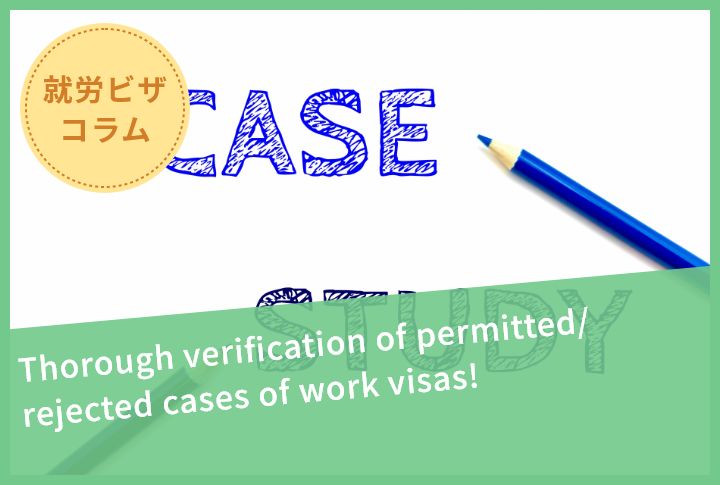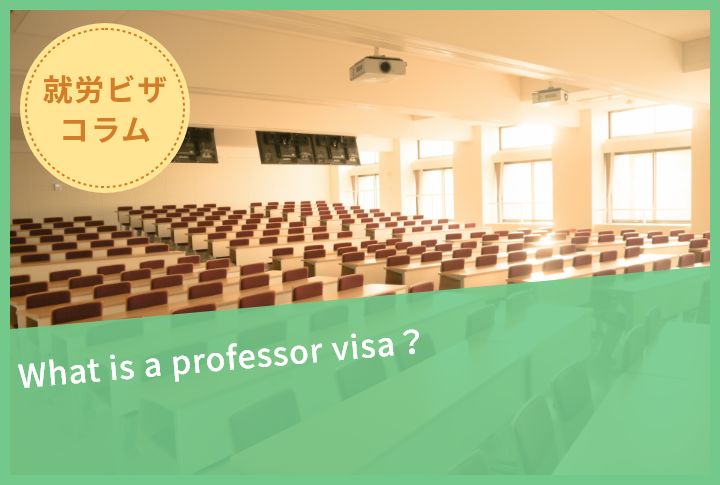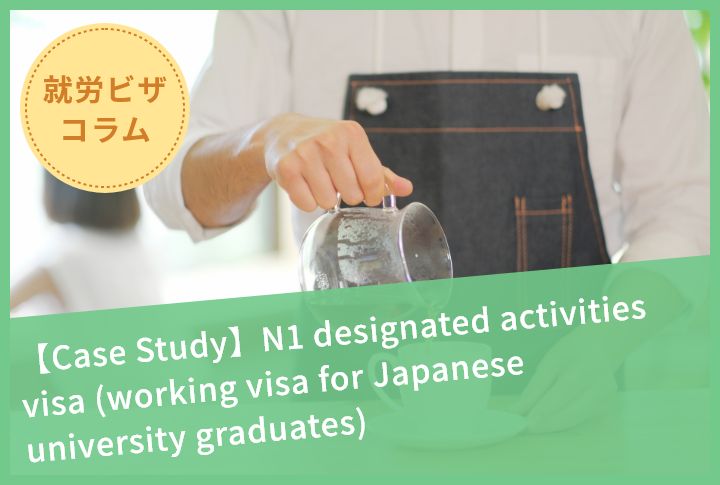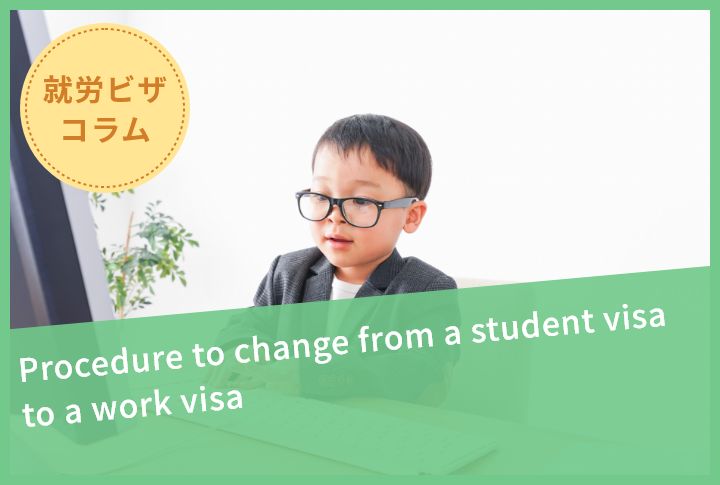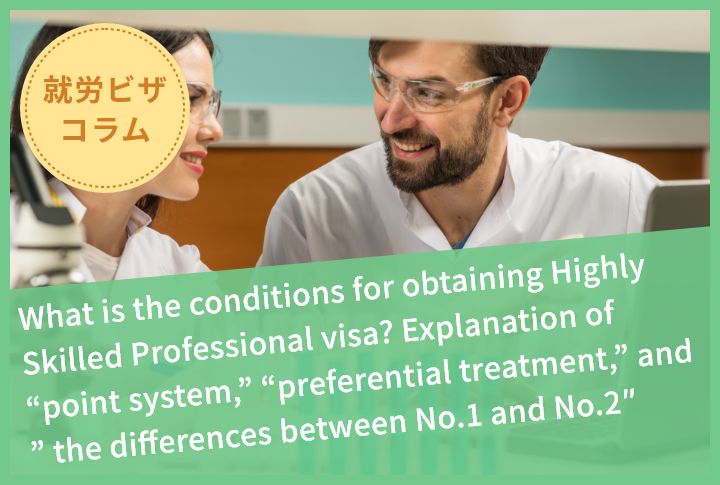What is an instructor visa?
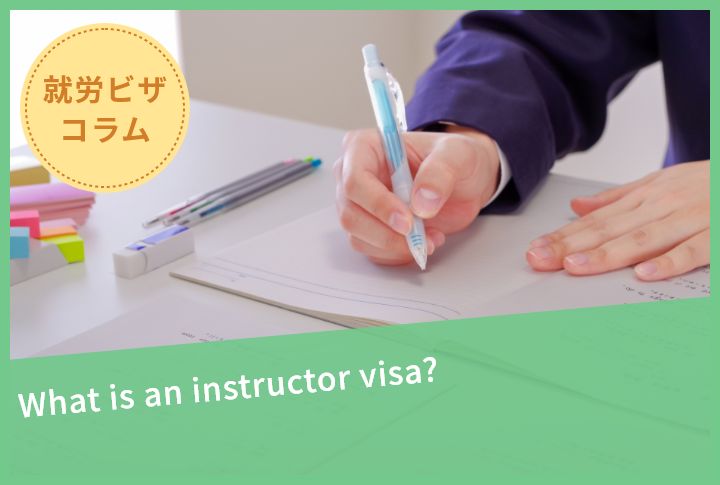
An instructor visa is one of the work visas established to accept language teachers, etc. from abroad in order to respond to the internationalization of the educational field in Japan including foreign language education.
As activities permitted by instructor visas, the Immigration Act provides that “activities to engage in language instruction or other education at an elementary school, junior high school, senior high school, school for secondary education (“chuto-kyoikugakko”), school for special needs education, vocational school (“senshugakko”), miscellaneous category school(“kakushugakko”) or other educational institution equivalent to a miscellaneous educational institution in facilities and curriculum.
Let’s take a look at the specific contents of instructor visas!
Index
1. Documents required to apply for an instructor visa
First, let’s check out the documents required for an instructor visa.
Please see the website of the Ministry of Justice (listed below) for the documents required to apply for an instructor visa.
[Application for Certificate of Eligibility]
(Japanese)
http://www.moj.go.jp/isa/applications/procedures/shin_zairyu_nintei10_10.html
(English)
http://www.immi-moj.go.jp/english/tetuduki/kanri/shyorui/01.html
[Application for Change of Status of Residence]
(Japanese)
http://www.moj.go.jp/isa/applications/procedures/shin_henko10_09.html
(English)
http://www.immi-moj.go.jp/english/tetuduki/kanri/shyorui/02.html
[Application for Extension of Period of Stay]
(Japanese)
http://www.moj.go.jp/isa/applications/procedures/shin_zairyu_koshin10_10.html
(English)
http://www.immi-moj.go.jp/english/tetuduki/kanri/shyorui/03.html
2. Q & A concerning instructor visas
Below is a list of frequently asked questions about instructor visas.
Q: What are the specific contents of “other education” provided in the Immigration Act?
A: Activities permitted under instructor visas are stipulated in the Immigration Act as “activities to engage in language instruction or other education.” The “language instruction” here is just an example, and all kinds of education are included. Thus, the activities permitted by instructor visas are not limited to language education, and a wide range of educational activities can be performed.
Q: Can I obtain an instructor visa for working at a college of technology (kosen)?
A: Colleges of technology are positioned as higher education institutions; and therefore, educational activities conducted at a college of technology are covered by a professor visa, not an instructor visa.
Q: I plan to engage only in research activities at a vocational school, without conducting any educational activities. Am I eligible for an instructor visa in this case?
A: It is possible to obtain an instructor visa if you are conducting or instructing about researches that are inseparable from educational activities of a vocational school, but it will be difficult to obtain an instructor visa if you are only doing research as you explained in your question. In your case, you may be able to obtain a researcher visa.
Q: How long is the period of stay under the instructor visa.
A: A period of stay is either 5 years, 3 years, 1 year, or 3 months.
Q: What are Categories 1 to 3 of instructor visas.
A: Categories of instructor visas are as follows. Please note that the documents to be submitted to an immigration office will differ depending on the category.
1) Category 1: In case of working full-time at elementary school, junior high school, high school, school for secondary education (chuto-kyoikugakko), or school for special needs education.
2) Category 2: In case of working full-time at an educational institution other than the above.
3) Category 3: In case of working part-time.
Q: I wish to work as a teacher at vocational school (senmon gakko). Do I need to have graduated from university, etc. to get an instructor visa?
A: If you are going to work as a teacher at vocational school, there is not requirement concerning educational background under the Immigration Act. However, you must have a qualification based on the standards for establishment of vocational schools (below is the relevant part of the standards).
(Qualification of Teachers)
Article 41
Teachers of the special courses of vocational schools shall be those who fall under any of the following items and have special knowledge, skills, abilities, etc. regarding the education which they are in charge of.
(i) A person who has engaged in a service related to education, research, or techniques related to education which the person is in charge of at school, vocational school, miscellaneous category school, research institute, hospital, factory, etc. (hereinafter referred to as “school, research institute, etc.”) after completing a special course at vocational school and have studied in the special course and engaged in the service for 6 years or more in total.
(ii) A person who has engaged in a service related to education, research, or techniques related to education which the person is in charge of for 2 years or more if the person has a bachelor’s degree and for 4 years or more if the person has degree of junior college or associate’s degree.
(iii) A person who has experience as a chief teacher, instructing teacher, or teacher at a high school (including the latter course of a school for secondary education) for 2 years or more;
(iv) A person who has a master’s degree or a professional degree prescribed in Article 5-2 of the Degree Regulations (Ordinance of the Ministry of Education No. 9 of 1952)
(v) A person who has particularly excellent knowledge, skills, abilities and experience in a specific field; or
(vi) Any other person who is regarded to have abilities equivalent to or higher than those persons listed in each preceding item.
Q: I am going to work as a teacher at a junior high school in Japan. What are the requirements in this case?
A: In order to carry out educational activities as a teacher at elementary school, junior high school, high school, school for secondary education (chuto-kyoikugakko), or school for special needs education, it is necessary to obtain a license as a teacher specified by the School Education Act.
Q: I will teach English at a kindergarten. Can I obtain an instructor visa in this case?
A: Kindergartens fall under school specified in the School Education Act, but kindergarten teachers are not subject to an instructor visa. In this case, you should consider obtaining a visa of engineer/specialist in humanities/ international services as a language teacher.
Q: I wanted to work as an English teacher and signed an employment contract with a temporary staffing agency. I will be sent to a junior high school. Please tell me which visa I need to obtain in this case.
A: When it comes to language teachers, it is common to apply for a visa of engineer/specialist in humanities/ international services, but in this case, you need an instructor visa as the place of work is a junior high school and the activity content is teaching English.
3. Actual cases of consultation related to instructor visas
Here are some examples of actual cases regarding instructor visas settled by us.
1) I want to hire a graduate of vocational school as a teacher.
2) Which type of visa is necessary to be employed by a temporary staffing company and work as a language instructor at a junior high school?
3) What are the requirements for working in a position other than a teacher?
4) How do you interpret the provision as to the qualifications of teachers in the standard for establishment of vocational schools?
5) I want to obtain an instructor visa as soon as possible because the classes are starting very soon.
6) I want to change my visa from an instructor visa to a highly skilled professional visa.
4. Summary of instructor visas
To understand instructor visas, a cross-sectional understanding of the School Education Act and the standards for establishment of vocational schools, etc. is necessary. In addition, it is difficult to understand the Ministerial Ordinance to Provide for Criteria Pursuant to Article 7, paragraph (1), item (ii) of the Immigration Control and Refugee Recognition Act (so-called joriku kyoka kijun shorei), so from our impression, there are many questions regarding legal interpretation as to the ordinance.
We, Daiichi-Sogo Group, have dealt with complicated cases related to instructor visas, especially for vocational schools, where negotiations with the Ministry of Education, Culture, Sports, Science and Technology were necessary.
Please feel free to contact us if you have any problems with the legal interpretation concerning instructor visas.









